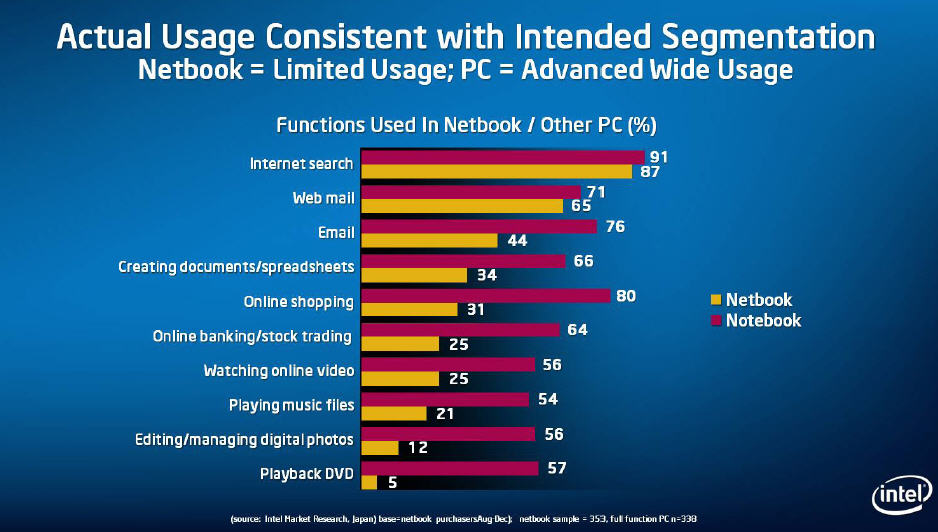Intel: Netbooks are about seeding next-gen customers (kids)

Intel made the case that its netbook focus isn't hurting profit margins and isn't cannibalizing notebook demand. Meanwhile, the chip giant provided a few statistics on how folks actually use netbooks.
Intel's exec parade and messaging regarding netbook demand seemed to resonate with analysts. Wachovia analyst David Wong wrote:
Intel showed data from the market research firm GFK indicating that netbooks have been a fairly constant mix of overall notebooks (13-16%) in each month December 2008 through March 2009. Intel interprets this as showing that Atom is not cannibalizing other notebook processors in any significant way, a conclusion that we agree with.
More importantly Intel sales chief Sean Maloney detailed some research on netbook usage. Web browsing in. Multimedia out. What's unclear is whether those behaviors are due to the performance limitations of netbooks. CNet News' Brooke Crothers notes that there's a 30 percent return rate for a few netbook resellers.
Also see: Are netbooks really junky?
And Intel is focusing on making netbooks a kids play so it can "seed the next generation of tech adopters."
What's uncertain is whether Intel's contention that its Atom chip won't hurt margins going forward. Why question that projection?
Intel's Atom chip is taking a bigger chunk of the company's product mix. Aside from a first quarter inventory correction, netbook demand---and therefore Atom demand---is expected to grow.
But Atom chip margins are lower:
Intel CFO Stacy Smith argues that shared development costs can allow the chip giant to make Atom a juggernaut without significant risks. That argument lines up with Intel's "manufacturing as a weapon" mantra.
Also see: Intel preps chips for thin, light notebooks; Is it roping off Atom?
